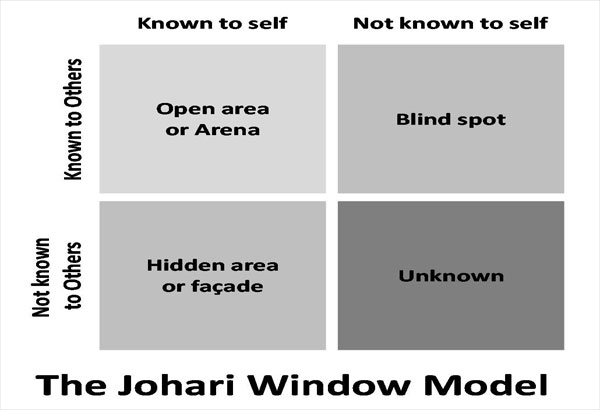Leaders need truth tellers
Feedback is the breakfast of champions – Ken Blanchard
In every business problem, there’s a people dimension. In my work as a consultant and corporate trainer, most of the problems I encounter between teams, within an organization and what’s hindering productivity is normally not the process. It has something to do with people. Occasionally, it’s because business owners or managers are unable to manage or lead their people well. So most of the times, my role as coach or trainer is to help my clients to improve the quality and quantity of conversations that they have with their people.
And it all begins with their ability to listen and receive feedback.
Even if you say, “My door is always open”, and you want that. But if people have hierarchical experience, they won’t tell you the truth. So often in organizations, people are afraid to tell you particularly if you have some power.What you need are some truth tellers in your life -- People who can tell you that you’re getting off your base. You’re not walking your talk, you’re not being consistent with who you want be. Because sometimes we can get so into what we’re doing that we don’t know what the truth is about it.

The Johari Window was invented by Joseph Luft and Harrington Ingham in the 1950s as a model for mapping personality awareness.
My mentor told me some time ago that I need three persons in my life in order to have a successful and fulfilling leadership role. I need to have a mentor, someone who will teach me what to do; a protégée, someone I can transfer my knowledge and expertise to and a truth teller, someone who can tell me my flaws and faults regardless of the circumstances or the power that I have.
Even Presidents of powerful nations need to have accountability groups in their leadership lives. You’ve probably read about the American history or seen in a TV drama or movie -- that certain presidents in the United States, they have what they call “kitchen cabinets” which was groups of old buddies who didn’t have anything to gain by having a relationship with them. And I think we all need that. And that’s what support and accountability group is all about.
And one of the ways to explain the power of this is to look at an interesting little model called the Johari window. And it sounds like it’s mystical or Far Eastern but it’s really a theory developed by two psychologists, Joseph Loft and Harrington Ingham, so they called it Johari window, a technique used to help people better understand their relationship with themselves as well as others. It is used primarily in self-help groups and corporate settings as a heuristic exercise.
It’s very simple but powerful. And what it says is that there are some things that we do that we don’t know about. We know some things about ourselves, and we don’t know some things about ourselves. Now, other people also know some things about you, and there are some things they don’t know about you. And when you put those together, you have four possibilities that are really interesting. Because if you know something about yourself and other people know something about you too, that same thing, that’s in your public window. So people know what your sex is, what your race is, what your language is, how tall you are, your position and all, or even what you post on your Facebook account, that’s all in the public window. But there are some things that others know about you that you don’t know about yourself. And that’s what we call the blind window – they know and you don’t know.
Now, the way to open your blind window is through feedback. People say to you, “I don’t know if you really know it, but you’re not really a good listener.” And sometimes we don’t know that.
When you have a friend who’s really a lousy listener for example. You say something to that person, and he always takes it in another direction. I mean, I can say it’s a beautiful day, and he’ll say, “Well, you should have seen the weather we had last week in Arizona when I was out at sea”. That person sorts by “self”. Good listeners sorts by “others”. A good listener, if you say, “it’s a beautiful day”, would say, “Tell me, what does a beautiful day would do for you?” He throws the back at you. He’s “other-person” centered in his conversations. These good listeners give me energy. They would keep the ball in your court. And so, the question is, what kind of a listener are you? Honestly, you might not know that you’re a lousy listener.
Okay, so you sort by “self” rather than “others”. And so the only way you can work on that, if you aren’t aware of that, is if somebody makes you aware by giving you feedback. And that’s what a truth teller would do. He would give you feedback. And there are some things about yourself that you know that other people don’t know. And a lot of these are about some of your feelings. For example, you might be nervous about your meeting with your boss but the people who work for you don’t know that. And so that’s known to you but not known to them. And that’s in your private arena. And the only way that it gets into public arena is through disclosure -- your willingness to share.
And a lot of people particularly if they’re a boss are most often than not aren’t willing to share and disclose because they think it’s showing weakness to show that you’re fearful about something. But that sometimes is very useful with accountability. Tell people how you feel so that they could say, “Okay, I hear you, please tell me more…where’s that coming from?” And they could maybe help you like, “I don’t know if you know but I think you’re really blind to the situation. I think you really want to win on this one and aren’t listening to people.”
And so, the way we build our public arena is by getting feedback into our blind window, stuff that other people know but we don’t or us disclosing from our private window into the public about something that’s concerning us that they might not know. And what’s really powerful when you have great truth tellers around you where everybody feels free to get everybody’s feedback, and people feel that sharing their vulnerabilities and disclosing their concerns or fears or hesitations and all is okay, is through feedback and disclosure. And feedback and disclosure is the fourth window.
You start to impact too – which is the unknown. But it’s really interesting after you have an honest truth-telling relationship, after a while in your dialogue you start saying, “I didn’t realize that.” And the other person would say, “You know, I never thought of that either!” And all of a sudden, you’re learning. And so, the best way we can really grow is to have people in our lives who are willing to give us feedback and hold us accountable for what we’re doing, and also a group that we’re willing to disclose and share with.
A lot of us have trouble listening to feedback. Have you ever experienced that when people are telling you the truth and you don’t really want to hear it? And the main reason that you don’t want to hear it is that you haven’t separated out listening to the feedback, and then deciding whether you’re going to do something about it. You see, a lot of times people think when somebody tells you something that you need to start doing it, or need to do it differently. No, it’s a separate decision. Separate the “listening” from the “doing”. But your first job is to listen. What they’re saying, and you say, “Tell me more.” Then separate out whether you’re going to take action or not. Great listeners know how to do that.
It’s really sad when you see that people don’t understand that. I used to not understand but when I did, it’s powerful tool not only in my leadership life but also in all my relationships.
A few years back after the Christmas holiday, I was going around the mall with my 7 year-old-daughter, Ysobel. We stopped past a sporting goods store. And the she stopped at a beautiful red bike in front of her and said, “Daddy, I like a bicycle like that!” Internally, I went absolutely berserk. In my mind, I thought, “I can’t believe you want a new bike. I just got you a new bike for Christmas and it’s not even 4 months and you already want another… of course I would never get you one!” I can almost imagine myself slamming my kid’s head into the cement. But I remember that I teach and train others about the principle of separating the act of listening from the actual act of doing what was suggested. So I pulled myself together. Knowing that I’m not really going to take any action about her statement. So instead, I just said, “Hey sweetie, what do you like about that bicycle?” She simply pointed out the streamers coming out of the handles. And that gave me some wonderful idea for her birthday, which was in April.That was a real cheap gift. She continued, “I like that soft seat better than the narrow one I have.” I was getting good suggestions from her for her birthday present and I said to her, “Sweetie, why do you think I can’t get you that new bike?” You see, she’s seven but she’s no idiot, so she replied, ”Because I just got a new one.” I could have slammed my daughter in face if I merely reacted initially. But I chose to listen and give an appropriate, win-win response. So we ended up with a simple resolution of changing the seat and buying a few colorful streamers for her four-month-old bicycle, which eventually became my 8th birthday gift to her.

The author with his daughter Ysobel now 14 years old. And in a feature magazine cover for Father's Day back when she was still 8 years old.
And so, isn’t it amazing when you realize that you don’t have to take action on what people share BUT you first have to listen to them. So always remember that when you are receiving feedback. Listen first. Then sort through all the feedback and decide which ones are critical for your growth. That’s how we learn. Then we decide to apply or act on what we have learned. And in many ways, that’s what Steven Covey meant when he said, “Seek first to understand.” And that’s what really powerful listening do.
* * *
Boris Joaquin is a top-ranked public speaker and masterful trainer for leadership programs and other soft skills. He is a seasoned management consultant, being involved in various industries and business sizes, from multinationals to locally owned enterprises. Presently, he’s the President & Chief Equipping Officer of Breakthrough Leadership® Management Consultancy, Inc.
Boris is a registered Investor in People Specialist helping assess and advise other organizations to achieve their business priorities through the development of their people. You may be able to contact Boris at (02) 813-2703/32 or email trainings@breakthroughleadership.asia



















